Hello everyone,
I've been baking for around a year and I am mostly happy with my yeasted breads, but when I use sourdough exclusively they are always a bit smaller than their yeasted counterpart. Is this expected or is it something I can overcome?
For example, I made a couple loafs, samish recipe, but one had 1gr of yeast added together with the starter. The recipe looks something like this:
The night before: mix a 1:5:5 levain (50% AP, 50% wholegrain) - the next morning it's ready (doubled) with a very slight vinagery smell.
- Autolyse 450gr flour (50 whole + 400 bread flour) with 325gr of warm water for 30'
- Add in 100gr levain, roughly mix it (we should be at 75% hydration)
- Add 11gr of salt (and 1gr of yeast, if using it) and mix well
- 5 or 6 strech and folds (one every 30')
- When I feel that the dough is getting a bit bubly (I'd say 40-50% increase, but I'm not measuring it) I preshape for 20-30 minutes
- Shape
- After 1:30 (if yeasted) or 3:00 (if sourdough only) I bake it in a dutch oven (30' with lid, 20' without @240C)
At shaping time, the sourdough bread looks like this (I'm wondering if I waited long enough before the shaping):
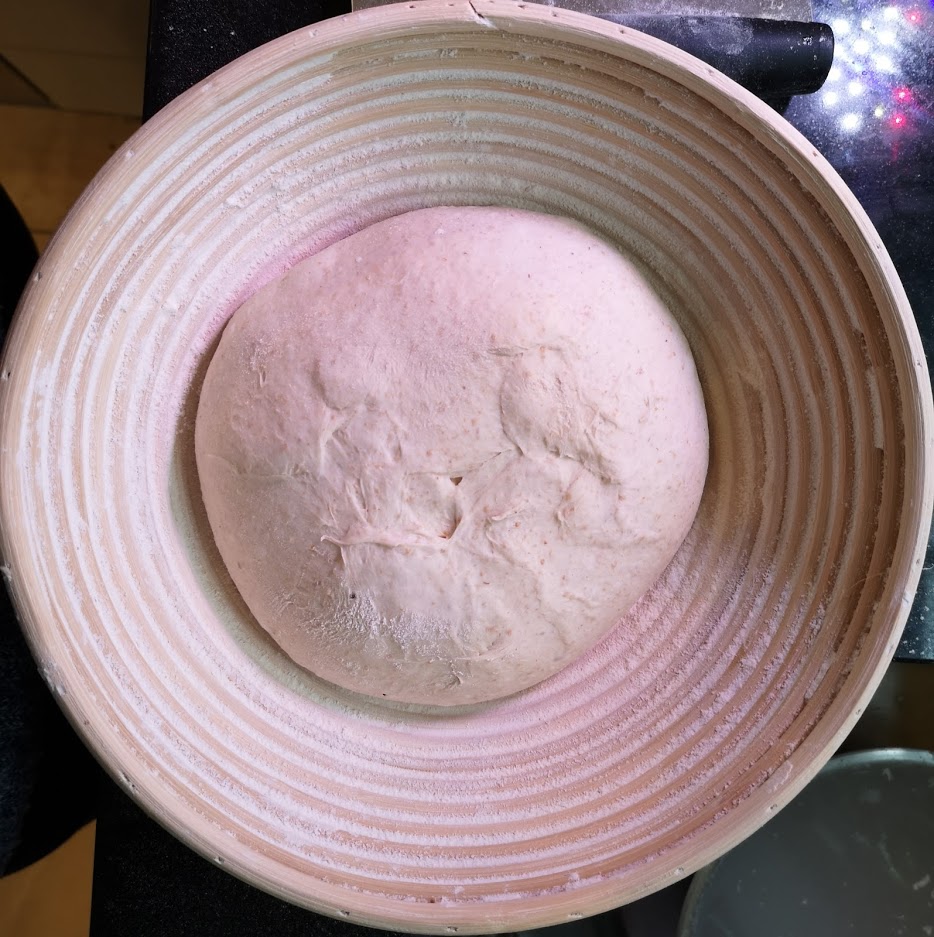
And after 3 hours it looks like this:
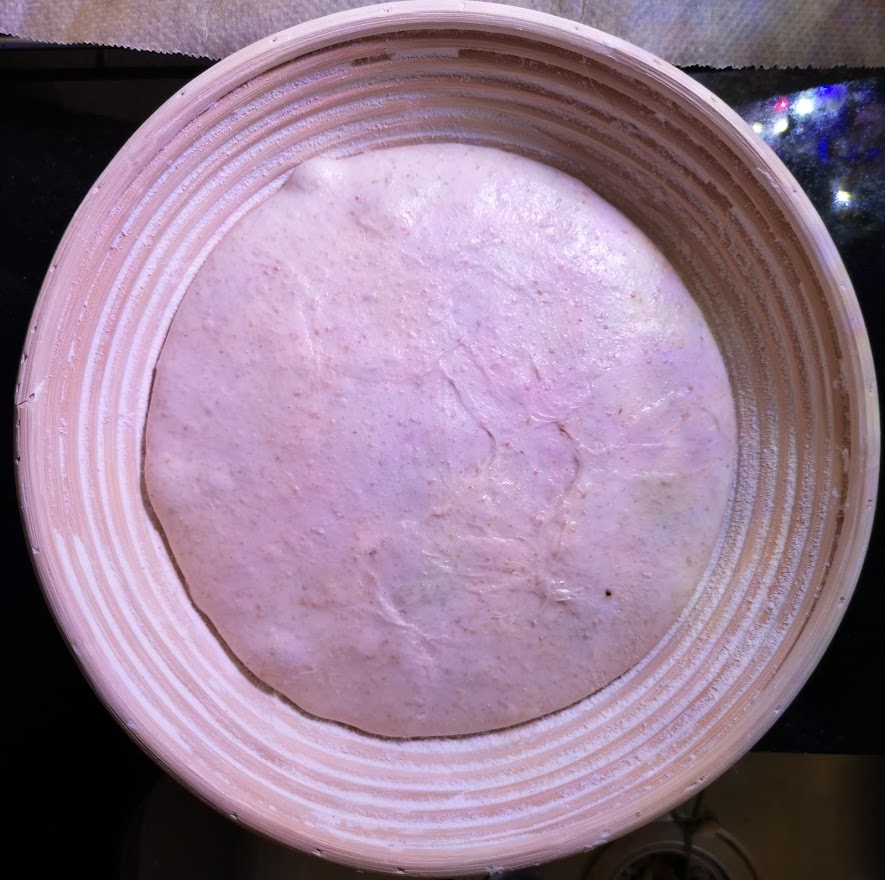
I am happy with the crumb:
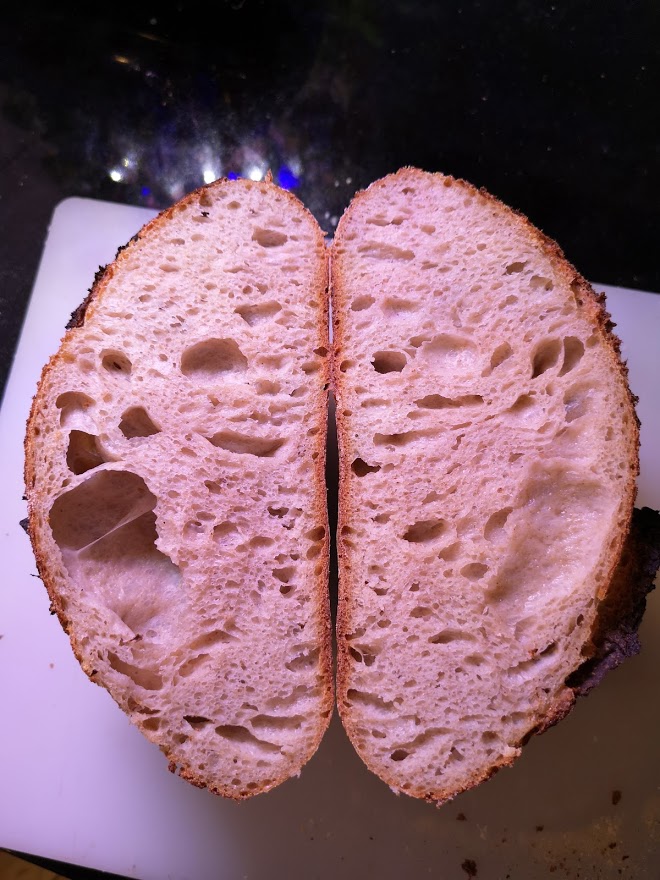
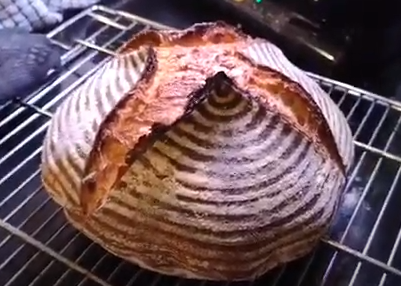
But it's a bit small in size.
For comparison, the same recipe with yeast looks like this:
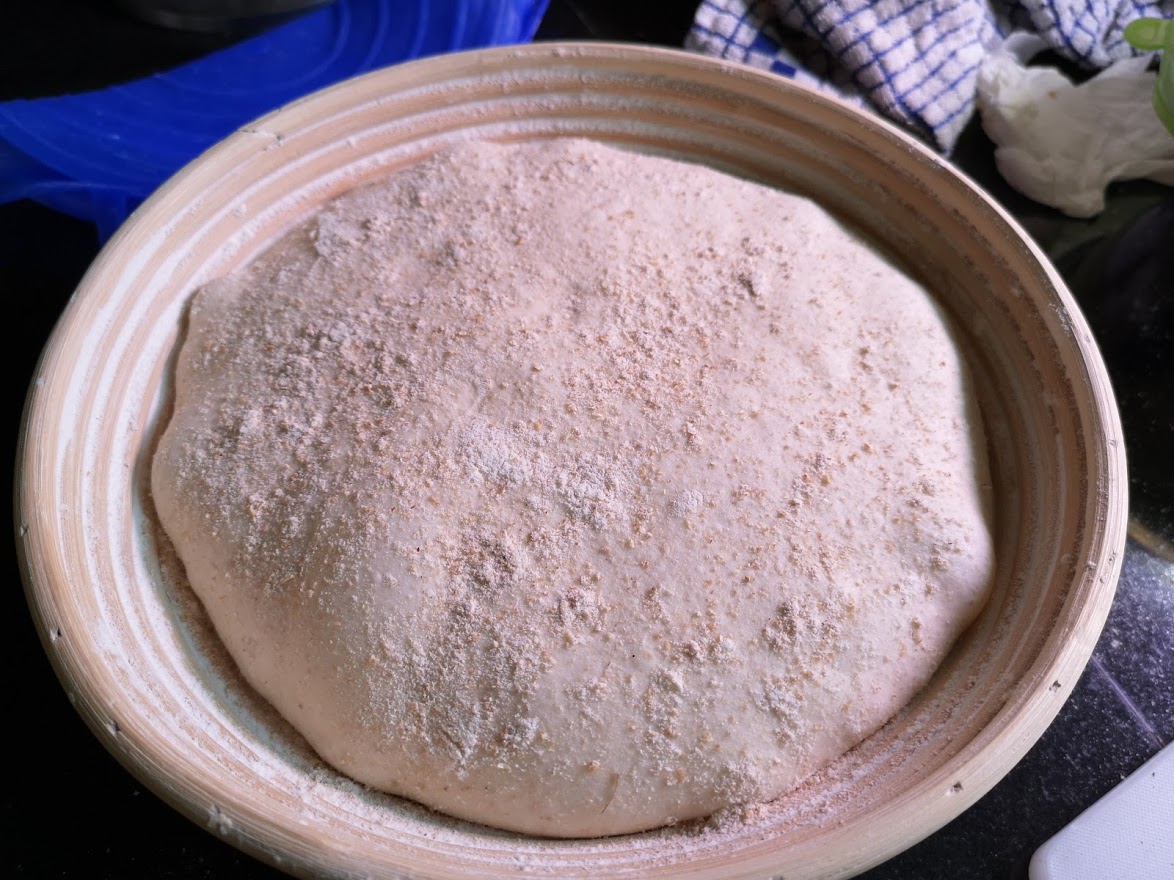
Much better! (even though the crumb is less pretty)
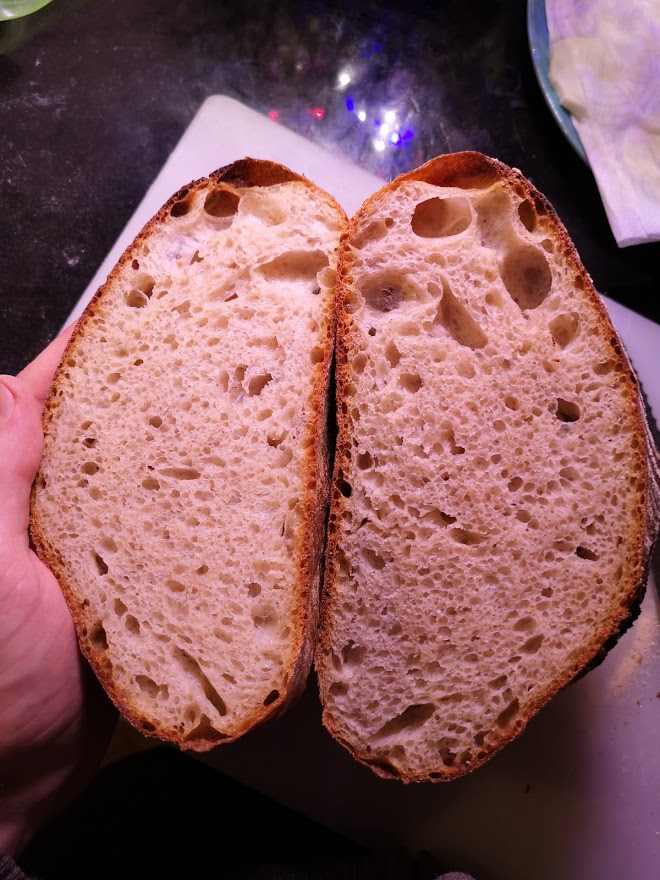
Any suggestions?
TLDR: is it normal that yeasted breads end up bigger?
Yeasted breads can be bigger, I wouldn't say always though. Sourdough is a different beast - literally, and as such has a different technique (and while similar there are some very different processes involved).
I'll say the production of acids (how much acid and when it's created) is a big difference and has a huge effect on a dough. These acids, when to much, will break down and/or inhibit gluten formation, and there's the trick - we want sour (most look for sour in sourdough) so we need those acids - controlling their production is key.
I'll also add - one of the biggest things about yeast is it's predictability - that's what it was designed for. Sourdough has more variables - more things to get used to. Enjoy!
Thanks for the reply, I guess I need to practice and experiment more to understand the process better!
It basically the same as yeasted breads - same principles apply - here's a big hint - things usually take a lithe longer.
One of those consistent and predictable qualities of yeast is the time it takes to do its thing. Starters, a properly maintained one anyway, can be pretty consistent, but it is a little to a lot more sensitive to things. As the process stabilizes, from start(er) to finish so will the results. Enjoy!